Kefir has a whole host of health benefits for dogs, including gut and skin health, as well as allergy prevention! Here’s your guide to kefir for dogs (including three flavorful recipes they’ll love).
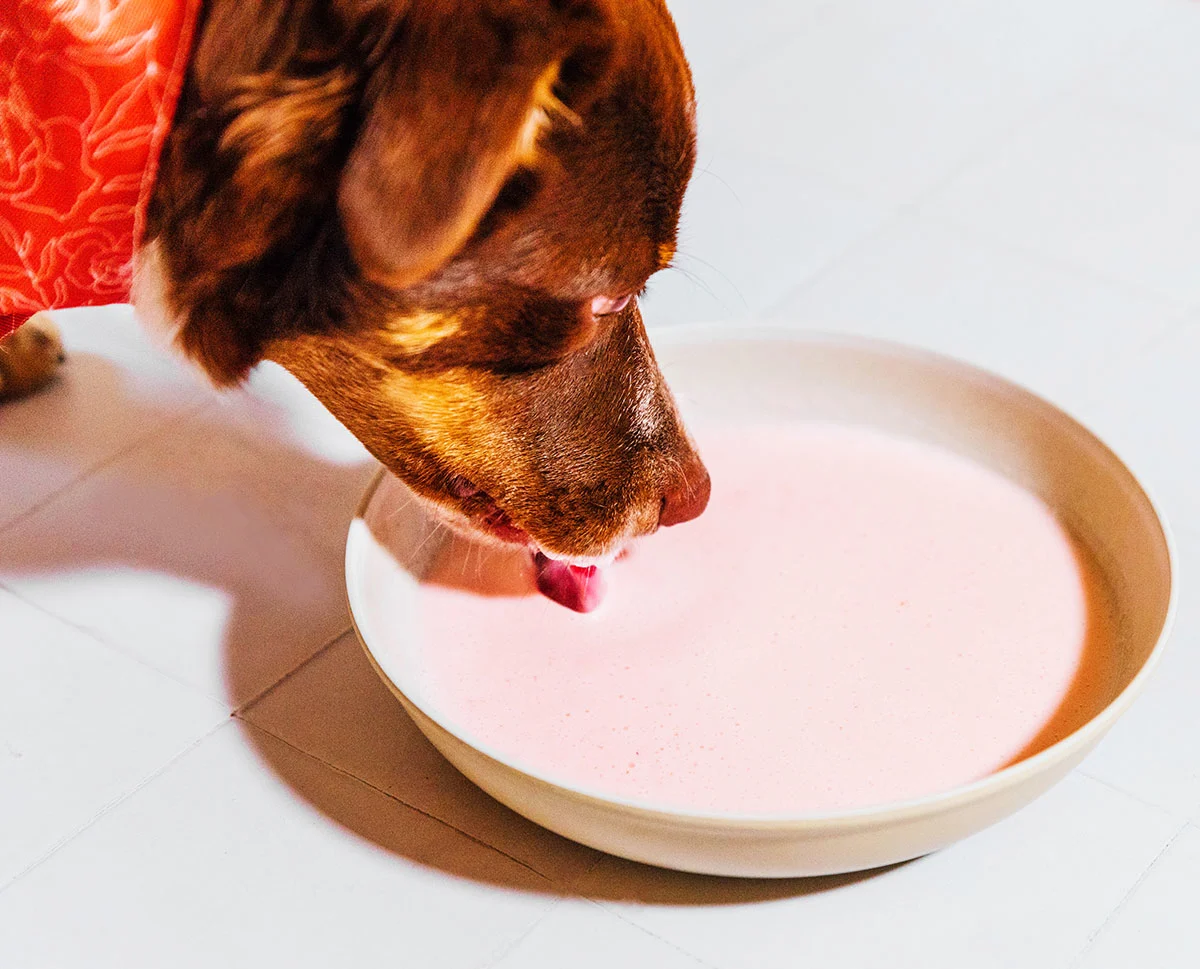
What is kefir?
Kefir is a fermented milk drink that is popular in many parts of the world. It’s made by adding kefir grains to milk and allowing it to ferment. Due to the fermentation process, much of the lactose in the milk is destroyed during fermentation, meaning even lactose intolerant people (and pups) can usually have kefir.
Kefir is an excellent source of probiotics, which are live bacteria that are beneficial for gut health. Probiotics are often referred to as ‘good’ or ‘friendly’ bacteria, and they help to keep the balance of microbes in the gut. An imbalance of gut microbes has been linked with a range of health problems, including inflammatory bowel disease, skin conditions, and allergies.
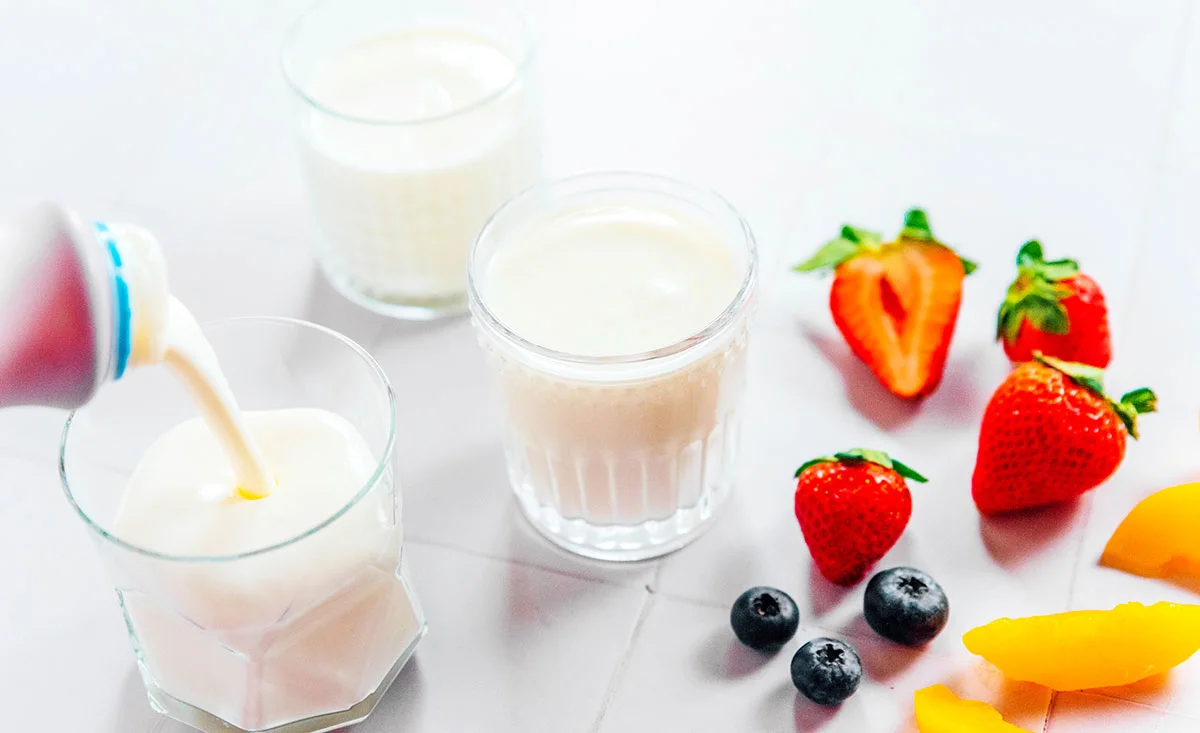
Can dogs have kefir?
For dogs, kefir can be a nutritious and healthy addition to their diet. The probiotics in kefir can help to restore the balance of gut microbes and improve digestive health. They can also help to boost the immune system and fight allergies.
Kefir is rich in vitamins, minerals, and proteins, and it can be a great way to boost your dog’s nutrition. It is also low in fat and calories, making it a healthy choice for dogs who are overweight or have diabetes.
The amazing benefits of kefir for dogs include:
- Promotes healthy digestive system
- Creates healthy skin and coat
- Counteracts bad breath (use it in these dog mints!)
- Prevents allergies
- Contains muscle-building protein
You should also take into account the amount of calories your dog needs each day. Dogs should consume 1 to 2 teaspoons of kefir per 15 lbs of body weight. So a 15 lb dog can have 1 to 2 teaspoons per day, a 30 kb dog can have 2 to 4 teaspoons, etc.
As with any new addition to your dogs diet, you should begin with a small amount of kefir and increase over time to prevent adverse reactions, like stomach ache or diarrhea (which can be common when introducing probiotics).
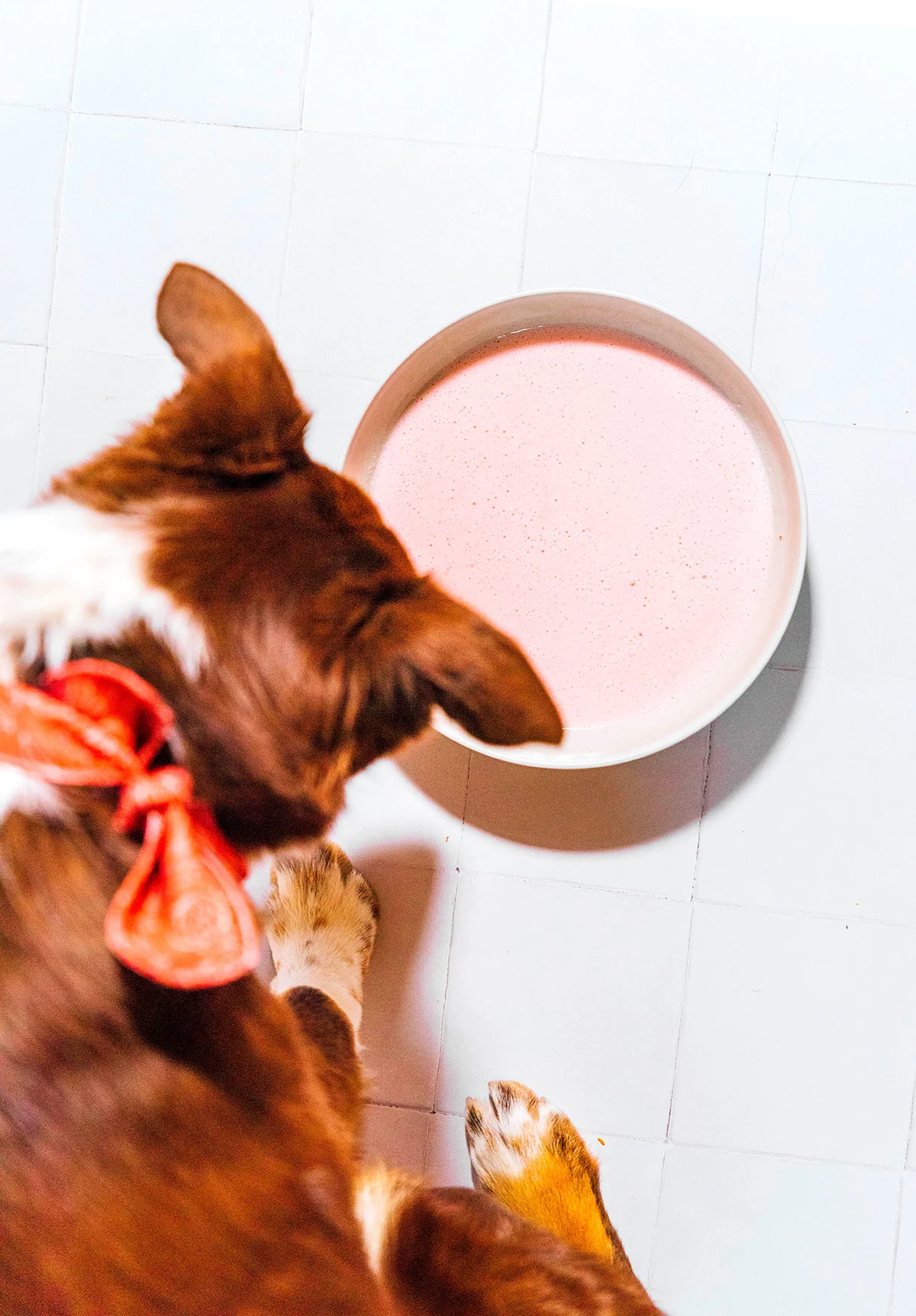
Do dogs need probiotics?
The short answer is yes, dogs need probiotics. Supplementing your dog’s diet with probiotics can help to restore the balance of gut microbes, support digestive health, and help dogs absorb nutrients from their food more effectively.
If you’re looking for a way to boost your dog’s health, adding probiotics to their diet is a great option. Probiotics are safe for dogs and are found in many different types of food. You can find probiotics in supplements, yogurt, cheese, kefir, and even some types of dog food.
When choosing a probiotic supplement for your dog, it’s important to choose one that is specifically designed for dogs. Probiotic supplements come in different strains, and not all strains are effective for dogs. When choosing a probiotic supplement, look for one that contains Lactobacillus acidophilus (which is in kefir!) or Bifidobacterium animalis. These two strains have been shown to be effective for dogs.
Common foods that contain probiotics include kefir, dog-friendly sauerkraut, raw goat milk, and unsweetened yogurt!

Kefir Recipe For Dogs
While dogs can (and will) happily lap up plain, unflavored kefir, we like to flavor it with fresh fruits to pack in even more vitamins and minerals. Plus, this makes it even tastier for you as well!

Peach Kefir For Dogs
Vitamin A-rich peaches are great for your dog’s eyes and skin. Simply combine 2 cups of kefir with 1/2 cup of peaches in a blender.


Strawberry Kefir For Dogs
Full of fiber and vitamin C, strawberries are a great addition to most dogs’ diets. To make strawberry kefir for your dog, blend together 2 cups of kefir with 1/2 cup of strawberries.
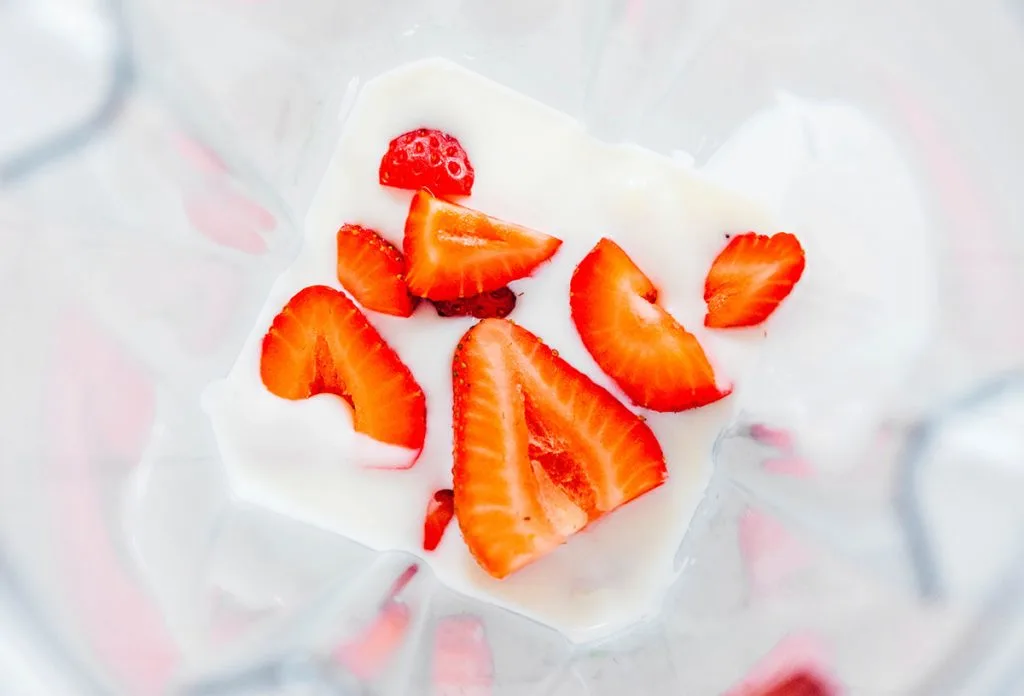
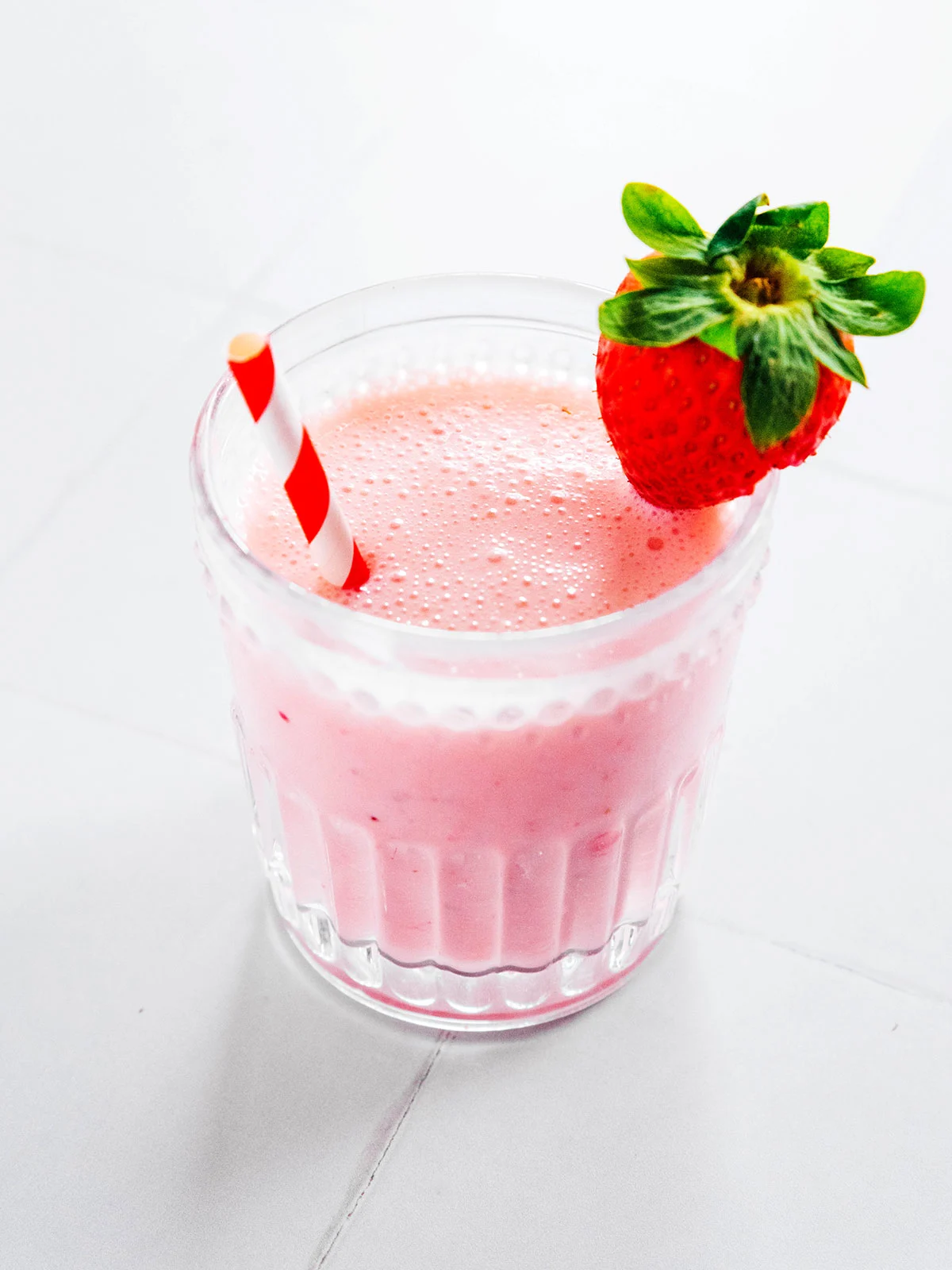
Blueberry Kefir for Dogs
Blueberries are a superfood for dogs, packed with a range of vitamins and minerals. To make blueberry kefir for your pup, blend up 2 cups of kefir with 1/2 cup of blueberries.
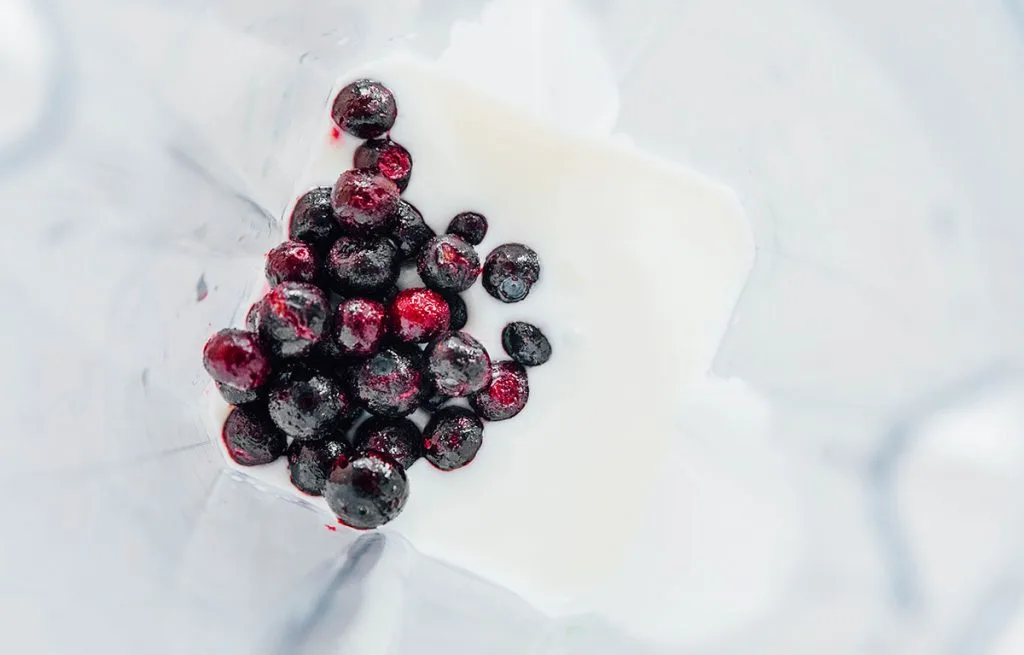

How to serve your dog kefir
You can serve your dog kefir in a whole variety of ways!
- In A Bowl: Pour a weight-appropriate amount of kefir into their bowl to lap up.
- In A KONG: Mix the kefir with a bit of food, peanut butter, or even pumpkin, then stuff it inside a KONG and freeze for a long lasting, probiotic-packed treat!
- In Pupsicles: Mix the kefir together with banana, pumpkin, yogurt (or any other dog-safe ingredient) and freeze into dog popsicles.
- In Frozen Dog Treats: Blend kefir with fruits or veggies and pour into silicone paw print molds (like we do in these frozen dog treats). They’re snackable and delicious for pups!
- In Pup Cups: Serve your kefir with a spritz of dg-friendly whipped cream in these homemade puppuccinos!

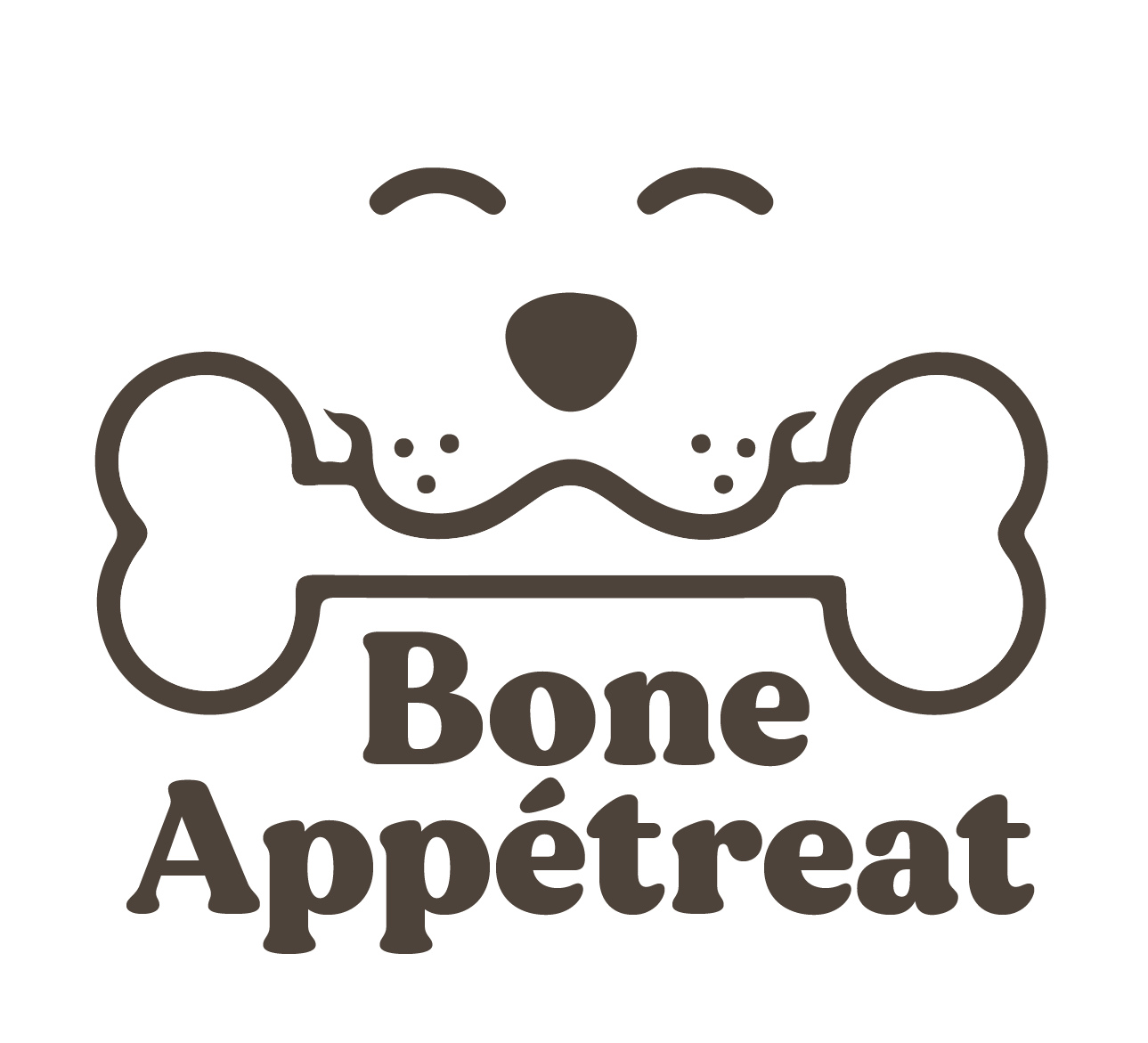

Lisa
Thursday 14th of March 2024
I was told by a canine nutritionist to give my dogs under 50lbs 1/2 cup of keifer a day. This is a lot more than you suggest.
Sarah Bond
Monday 18th of March 2024
That does seem like a lot, but I'm not a certified canine nutritionist so I would go with what they say! I always err on the side of moderation here, especially when it comes to introducing probiotics to a dog's diet. Sometimes it can cause stomach upset.
Sue
Tuesday 7th of November 2023
I will not put any food in a Kong after reading about a dog who got his tongue caught in one trying to get the food out, then the tongue swelled, making it even more impossible to dislodge, which ultimately caused his death.
Cyndi
Sunday 22nd of October 2023
Is it ok to put over there dry food
Sarah Bond
Tuesday 24th of October 2023
That's a great way to serve kefir to your dog! :D
Grace
Wednesday 23rd of August 2023
Question: you said 1-2 tsp per 15 lbs, but with fruits added, how do I measure the dosage?
Sarah Bond
Wednesday 23rd of August 2023
Use your best judgement! If you added a little fruit, 2 to 3 tsp is probably suitable. If you added a LOT of fruit, perhaps 1 Tbsp.